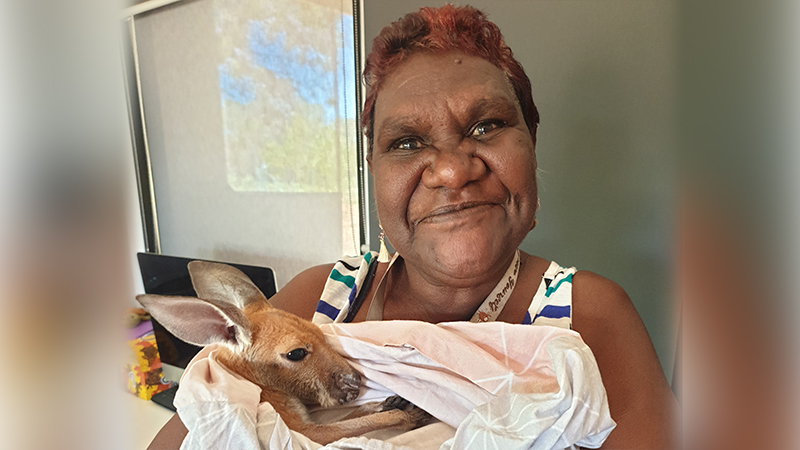Reducing reoffending through recognition of family and culture

The Aboriginal Justice Agreement is reducing reoffending through the alternatives to custody program, which rehabilitates female prisoners using a community model that addresses behaviour, and recognises individual needs and cultural values.
The alternatives to custody program is one of the Agreement’s 13 commitments, arising from the Aboriginal Justice Agreement’s community consultations, which highlighted the need for an on-country residential rehabilitation facility.
The program provides an alternative option to imprisonment for eligible prisoners and reduces numbers in correctional centres.
Drug and Alcohol Services Australia (DASA) runs the Alice Springs-based program using a culturally-led, community-based approach with clients.
“Our clients are supported over a six-month period with a structured routine from Monday to Friday that gives them stability and security. In this time, they receive group counselling sessions and life skills training that include learning how to make meals, cleaning up, laundering their own clothes, and essentially, running a household,” says Amanda Houston, DASA’s case manager.
“For some, making a cup of tea to welcome a visitor is a completely new activity.”
Since its establishment in August 2020, the program has evolved to meet the needs of their clients — a key factor in its success. The program is funded to operate a maximum of ten beds, however individual circumstances are taken into consideration and young children may be included during a client’s stay.
Ms Houston says this flexibility is important for the client’s rehabilitation and their families’ reunification.
“There is a real need for healing within families.
“Some of our clients have not had contact with their children in two years. While it is a happy experience, it can be quite challenging to be a full-time parent again.
“Our clients are taught skills to be mums again, and to do so in a responsible manner. They’re learning how to put their children first, and the children are seeing their parents in activities that encourage role-modelling.”
The inclusion of children for eligible clients can improve outcomes for other women who assist with child care.
“Looking after other people’s children is a cultural norm for our clients, so there is therapeutic benefit for other residents too,” Ms Houston adds.
Of the 16 clients who have completed the program, only one has returned to prison. Clients who are parents have kept their children and maintained their obligations to the Department of Territory Families, Housing and Community Development.
Ms Houston credits the results to the recognition of individual client needs and a six-month timeframe that addresses behaviour change in a culturally safe environment. This timeframe is adequate for the client to assess their circumstances and make supported decisions that determine their outcome after their discharge from the program.
“The program is about healing women and helping them to be the best person they can be. If a client can change one aspect of their lives, to me, that’s success,” says Ms Houston.
Give feedback about this page.
Share this page:
URL copied!